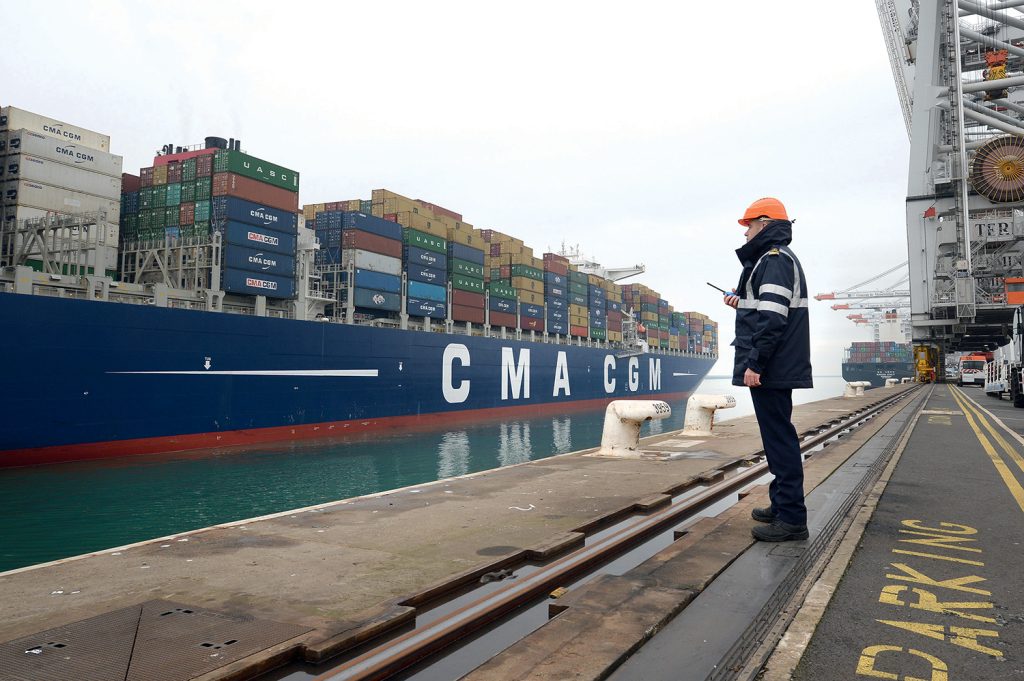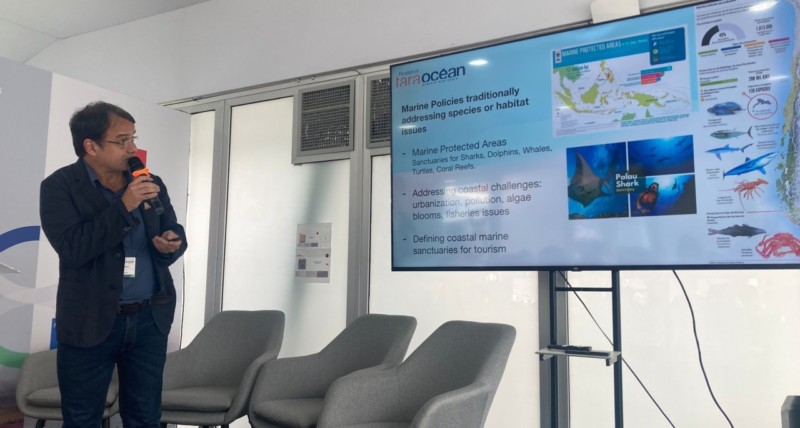Natural maritime and coastal spaces are under threat, primarily due to human activities. The indicators are alarming, especially concerning issues like plastic pollution, climate change, ocean acidification, rising sea levels, overfishing, and biodiversity loss. Although these challenges are addressed in some international agreements, such as the treaty for the protection of the high seas and marine biodiversity (BBNJ), they must be accompanied by a profound transition in our societies, including the maritime economy. Beyond the necessary reconfiguration of existing sectors, the maritime industry also offers promising alternatives, whether in the energy field with renewable energies, in food production with environmentally respectful aquaculture as a supplement to fishing, or in the health field through the discovery of new molecules.
The eco-energy transition of the maritime economy: a tense opportunity
Greenhouse gas (GHG) emissions from international maritime transport represent only 2.89% of total global emissions (2020 study by the International Maritime Organization – IMO). It is the least polluting mode of transport per ton carried.
Based on this observation, international organizations and states have committed in recent years to more ambitious reduction pathways, specifically targeting the maritime economy. The European Union (EU), through the « Fit for 55 » package stemming from the Green Deal and its « FuelEU Maritime » initiative adopted in July 2023, must help kickstart the large-scale production of low-carbon renewable marine fuels while ensuring the smooth flow of maritime traffic. These initiatives should also help place maritime transport on track to meet the EU’s 2030 climate goals and achieve carbon neutrality by 2050. To do so, the EU has also committed to supporting the development of the offshore wind sector, setting a target to increase European production capacity from 12 GW to at least 60 GW by 2030. On this front, President Macron set the goal of deploying 45 GW in France by 2050 at the « Assises de l’économie de la mer » in November 2023, along with 2 GW per year starting in 2025.
The IMO has also strengthened its position on decarbonizing the maritime economy and the vessels of its member states by adopting a revised strategy in 2023, including higher targets to tackle harmful emissions. This shared ambition aims for a zero-net GHG emissions reduction from international maritime transport by or before 2050. Several measures have been suggested by the IMO, including a fuel standard based on goals for progressively reducing GHG emission intensity, and another based on an emissions pricing mechanism for the sector.
While projects around e-fuels are multiplying and generating some hope, they are currently very costly and far from being realized at an industrial scale. These opportunities therefore require substantial investments and closer collaboration between public authorities, industry, and other stakeholders. It is these collective contributions that will then allow further investments in research and development (R&D) of innovative decarbonization technologies, as well as in e-fuel production infrastructure necessary to support their deployment. Moreover, the implementation of a national synthetic fuel diplomacy must guide France to secure its most competitive resources and project its industry into countries that possess these resources.
At the same time, wind-powered transport, relying partially or entirely on wind propulsion, is experiencing a noticeable boom with a growing number of projects, particularly in France, despite this type of propulsion being excluded from the European zero-emission taxonomy and associated funding. Slow steaming, which involves reducing ship speed to lower emissions, discussed at the 2019 G7 summit in Biarritz by President Macron, presents another possibility, but one that includes potential negative effects that cannot be underestimated, such as the financial impact on supply chains and the increase in fleets by shipowners to maintain equivalent service levels in terms of delivery times, which are the most commonly cited concerns.
The French blue economy: backbone of national sovereignty
The French blue economy is now an essential pillar of our national economy, directly contributing to France’s food, energy, industrial, and health sovereignty. It plays a crucial role in the preservation and development of our nation, as 72% of our imports and exports pass through maritime routes. Our communications are equally affected: 95% of them are transmitted through underwater cables, increasing the strategic importance of this sector.
In full transformation and always seeking innovation, the French blue economy generated a production value of 116 billion euros in 2023 (1), while offering more than 530,000 direct jobs. By 2030, the sector’s ambition is to reach a production value of 150 billion euros and one million jobs.
Source: areion24



